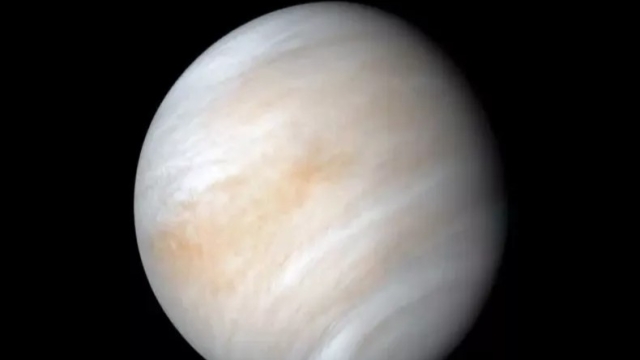
Image: Newsweek/NASA's Mariner 10 spacecraft
Venus has long been assumed to be uninhabitable: its thick carbon dioxide atmosphere is swirling with yellow clouds of strong sulfuric acid, and its surface is something out of a nightmare, hitting over 850 degrees Fahrenheit and pressures 93 times that on Earth's surface.
Now, new research has suggested that some of the ingredients of life could exist within those clouds of extremely strong acid.
Scientists have found that amino acids—the building blocks of proteins, and an essential molecule for the existence of life—can remain stable when exposed to concentrated sulfuric acid.
This implies that in those thick clouds of sulfuric acid, above the intense heat and pressure of the planet's surface, Venus could be inhabitable to life. Previous work by the researchers found that nucleic acid bases - the building blocks of DNA - were also stable in concentrated sulfuric acid.
If life could evolve on this chaotic planet, it would, of course, be very different from any sort of life we know on Earth.
The researchers hope to delve into whether this avenue could reveal the possibility of the evolution of life on other planets, and investigate whether chemical reactions may be occurring with amino acids in Venus cloud layers, around 30 miles to 40 miles above the surface.
Source: Newsweek
Image: Newsweek/NASA's Mariner 10 spacecraft